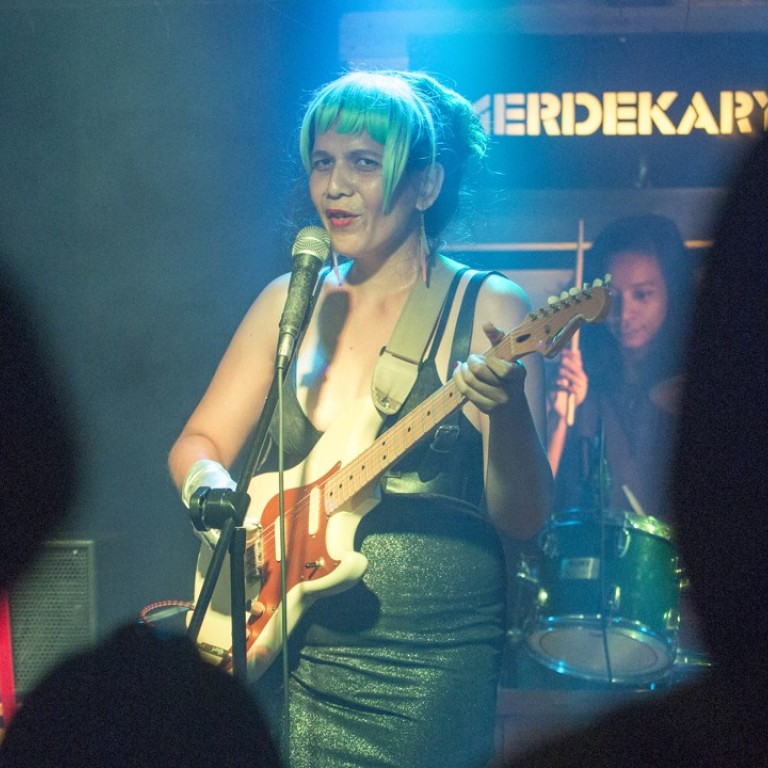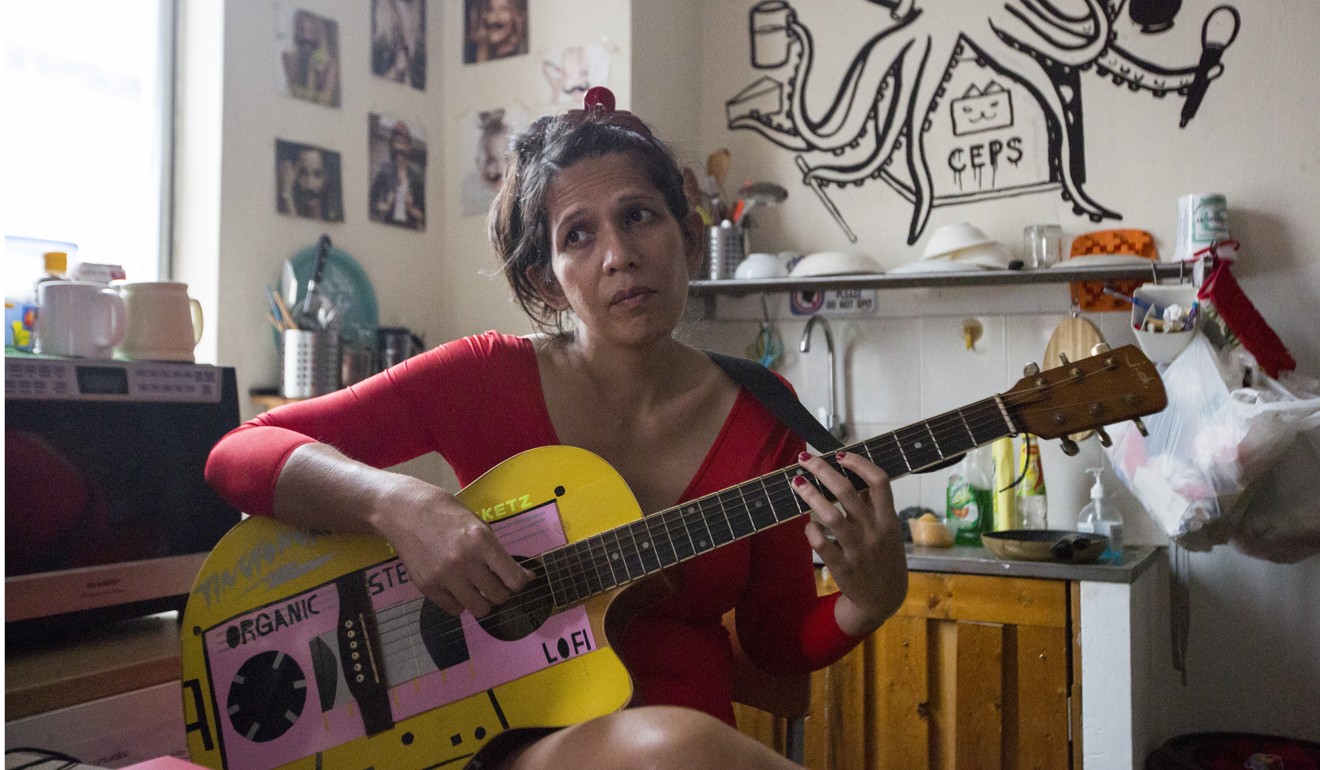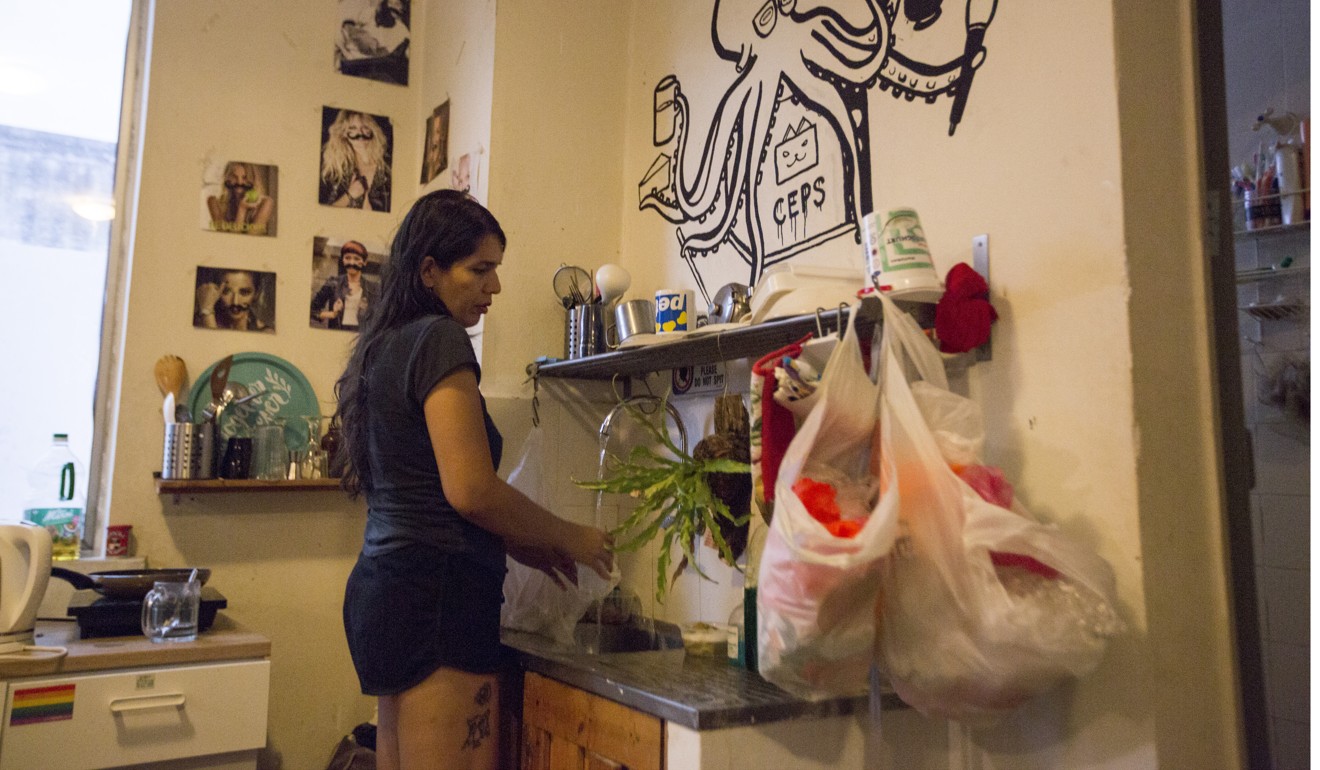
How a Malaysian transgender musician found her voice through metal music in a country that doesn’t accept her
- Musician and artist Shika Corona created the band Tingtong Ketz in 2015 with a revolving cast of fellow queer and trans musicians
- She is using her art and lyrics to try and break gender stereotypes that exist in the conservative country
One of the biggest exports from Ujong Pasir, a small town in the Malaysian state of Melaka, is transgender musician and artist Shika Corona – not that the town officially acknowledges this.
Shika grew up there in the 1980s and ‘90s, when Malaysia was going through the early stages of Islamisation. In the decade before, Malaysia was known as the only Southeast Asian country, apart from Thailand, where sexual reassignment surgery was legal. In the early 1980s, under increasing religious pressure, the government outlawed the surgery.
This LGBT band is using music to fight Malaysian discrimination
“Malaysia was a very different place then,” says Shika, who won’t reveal her age. “My family would go to fun fairs in Ujong Pasir, and there was always a Paper Dolls show,” she says, referring to a popular cabaret show featuring transgender women. “They were so beautiful, I wondered if I could be like them.”
Shika is sitting in the kitchen area of Cepronia, a privately owned studio in Kuala Lumpur shared by several LGBT bands, including her own, Tingtong Ketz. Her artwork features prominently on the walls and shelves.
Adopted as a baby, Shika’s parents intended for her to be the son who would take over her father’s restaurant business. She helped at the restaurant as a child, learning the ropes. Extremely introverted and shy, her father’s friends would call her pondan, an insulting Malay term for “transsexual”. Sometimes her father would call her that, too.

“My aunt would tell my father that every word from a parent is a prayer. True enough, I became a pondan,” Shika laughs.
Shika’s music and art serve as her voice. It’s the result of a lifetime of seeking refuge in music and drawing. Her drawings are quirky, like her music, making it surprising that heavy metal was one of her earliest influences.
Music is such an important part of my life and a part of my voice.
Metal was huge in Malaysia in the 1980s, even in Ujong Pasir.
At 13, Shika was sent to an all-boys religious boarding school in an attempt to “straighten” her out. There, she received her first metal album, Megadeth’s So Far So Good … So What!. “I was so scared to play the cassette out loud. I was afraid the building would explode,” she says.
Her neighbour was a fan of metal music and played guitar every day. He eventually taught her how to play. It was a welcome escape from the double life she was beginning to lead.
Shika would opt out of family outings to stay home and wear her sister’s clothes. Through cartoons, especially anime, Shika found a way to escape her small-town double life. She dreamed of going to Japan.
Indonesia’s hijab headbangers and the first heavy metal president
“In Melaka people shout at each other, so I romanticised Japanese culture, which is more soft-spoken. That’s how I knew I had an escape route,” she says.

While her aunt disapproved of Shika’s effeminate nature, she recognised Shika’s talent and helped to enrol her in an arts college in Kuala Lumpur. This was the late 1990s when the Malaysian underground music scene was booming.
Mak nyah [a Malay slang term for trans women] are expected to be in make-up and heels. I want to break away from that stereotype. That’s why I love playing music.
“I didn’t have any queer friends, but I went to a lot of gigs. It really shaped who I am,” she says.
Shika found a job at an advertising agency and came out to her boss, who was very accepting.
It was during the age of dial-up internet and GeoCities communities that she met her first trans woman. Shika then started taking hormones and stopped visiting her parents after it became clear they refused to accept her.
Eager to pursue her dream of visiting Japan, she left the ad agency in 2005 and enrolled in language classes. Her teacher introduced her to activists from Pusat Komas, a human rights organisation, and she began freelancing as a rights worker for various NGOs.
“I read so much during this time. My housemates were activists as well, and we would have parties with amazing discussions, which really opened my eyes,” she says.
In 2010, she saw Malaysian LGBT band Shh … Diam! play at Seksualiti Merdeka, an annual human rights festival in Kuala Lumpur, which was banned in 2011. “I was amazed that there was an openly queer band in Malaysia. I wanted that, too, because music is such an important part of my life and a part of my voice,” she says.
She then received a grant from the Nippon Foundation which gave her access to artist residencies in Manila and Tokyo, her dream destination.
After her father passed away from cancer, Shika decided to focus on herself. “I told myself I would get gender-reassignment surgery and migrate. In 2015, I got my surgery done in Thailand.”
That same year, she started Tingtong Ketz with a revolving cast of fellow queer and trans musicians. She then went to Finland and applied for an artist residency programme under the Artists at Risk initiative. “My plan was to eventually seek asylum, because I want to claim my name and gender when I die. You can’t do that in Malaysia,” says Shika.
Filipino indie bands who’ve made it through social media and the internet
She has been back in Kuala Lumpur for almost a year now, making art and recording music with Tingtong Ketz. Her self-titled debut album was launched earlier this year. Living in an enabling environment of artists and musicians has helped her develop Tingtong Ketz.
“The Malay Muslim community is largely conformist. Mak nyah [a Malay slang term for trans women] are expected to be in make-up and heels. I want to break away from that stereotype. That’s why I love playing music,” says Shika.
